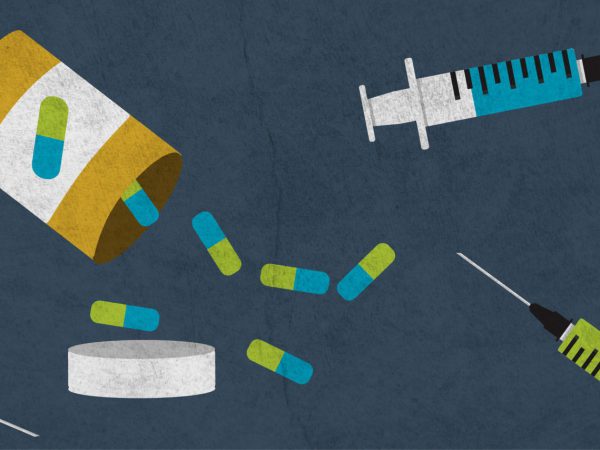Ellen Quigley is the Vice President of Programs at the Richard M. Fairbanks Foundation
An Interview with Dr. Krista Brucker, Emergency Room Physician and Co-founder, Project POINT
Background
In 2016, the Richard M. Foundation awarded a $700,000 grant to support the expansion of an innovative program called Project POINT (Planned Outreach, Intervention, Naloxone and Treatment) at Eskenazi Hospital to tackle the devastating impact of the opioid crisis. This holistic program serves individuals who are brought into the emergency room (ER) after an overdose by connecting them to treatment and the other services they need to rebuild their lives. Dr. Krista Brucker, who helped launch Project POINT in 2015, shared insights about how POINT is helping patients navigate the complex road to recovery.
Dr. Brucker, what motivated you to create this program?
Several years ago, Indianapolis Emergency Medical Services (IEMS) began noticing a dramatic increase in the number of overdoses requiring the use of naloxone, the drug that reverses opioid overdoses. To expand their reach and save more lives, IEMS trained law enforcement officers and other first responders in 2013 to administer naloxone to individuals who overdosed. First responders then transported patients to the ER for stabilization and release. Over the next year, first responders began to express frustration about the fact that most of the individuals who were being revived were being released from the hospital within a few hours only to return to their previous environment without connections to further treatment.
The IEMS and Eskenazi ER doctors realized that these patients required more support before and after they left their care. They also recognized that an overdose represented a huge opportunity to facilitate connections to treatment. With this in mind, the doctors launched POINT, which provides rapid hepatitis C testing, naloxone distribution to patients and concrete connections to treatment and other resources with the help of peer recovery coaches. The coaches are individuals in recovery who provide nonjudgmental support to patients at the bedside and after they leave the hospital.
Because many patients also experience significant challenges such as criminal justice issues and a lack of stable housing, transportation and food, it is important to also help them address these other barriers as well as their treatment needs. The coaches play a vital role in connecting them to services that break down these barriers.
Can you share an example of how the program has impacted patients?
While not every patient has achieved long-term recovery, many participants have been successful. For example, POINT staff has worked with a few mothers who have gone more than one year without using heroin and are now in the process of finding stable housing and reuniting with their children. Throughout the last year, the coaches have maintained contact with the women as they addressed their individual challenges – including jail time – and helped them connect to the resources they needed to take each next step toward stability.
What are a few lessons you have learned from this initiative?
- In general, we have a shallow understanding of the lives of individuals using opioids, the depths of their suffering, and the challenges they experience trying to get help. To successfully address this crisis, we need to put individuals with lived experience at the center of planning and execution of programs designed to serve them.
- The success of this program has hinged on the involvement of the peer recovery coaches, who meet patients where they are and help them reach the goals they set for themselves – whether it is related to avoiding a future overdose, engaging in treatment or establishing more stability in their lives.
- Despite progress that has been made to raise awareness of substance use disorder (SUD) as a chronic disease, there is still much work to be done to reduce the stigma associated with SUD. POINT has played an important role in reducing stigma in the hospital setting and has helped clinicians communicate more effectively with their patients.
Tagged in: Indianapolis, Naloxene, opioid epidemic, Opioids, Project POINT



